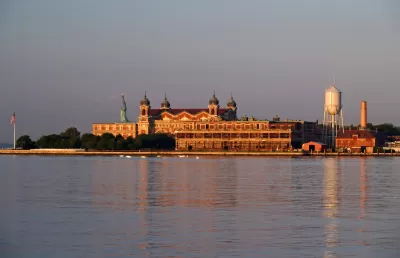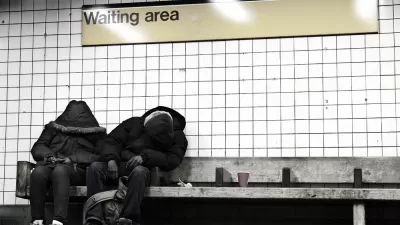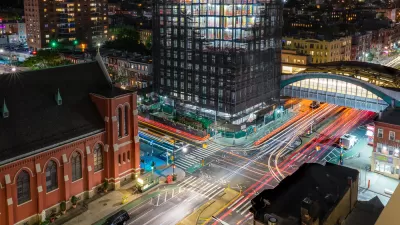The Adams administration in New York City will relax the review process for homeless shelters to create new space for arriving asylum seekers.

New York Mayor Eric Adams signed Executive Order 406 on May 15, temporarily suspending rules in the city’s Uniform Land Use Review Procedure, New York City’s version of the development approval process, to reduce the review process for siting, leasing, constructing, and operating new homeless shelters.
According to the executive order, the mayor’s decision to relax the city’s approval process for homeless shelters comes in response to the arrival of asylum seekers in the city. “[T]he City now faces an unprecedented humanitarian crisis that requires it to take extraordinary measures to meet the immediate needs of the asylum seekers while continuing to serve the tens of thousands of people who are currently using the DHS Shelter System,” according to the executive order.
Elizabeth Kim reports the news of the executive order in an article for Gothamist. The city’s shelter system is “at or near capacity,” according to city officials and aid workers cited in the article.
“The city previously suspended its lengthy land use review process for the building of emergency relief centers, which are designed to serve as temporary housing for migrants,” reports Kim. “But as part of the new order, the city will now include homeless shelters in that exemption.”
“The suspension of rules — known as the Uniform Land Use Procedure or ULURP — means that the city will not be required to hold hearings or submit to any of the typical approvals or recommendations involved in land use approvals,” adds Kim.
Kim also reports that the Adams administration is considering 20 school gyms as possible shelter sites.
FULL STORY: Mayor Adams suspends NYC review process for building shelters as more migrants arrive

Maui's Vacation Rental Debate Turns Ugly
Verbal attacks, misinformation campaigns and fistfights plague a high-stakes debate to convert thousands of vacation rentals into long-term housing.

Planetizen Federal Action Tracker
A weekly monitor of how Trump’s orders and actions are impacting planners and planning in America.

San Francisco Suspends Traffic Calming Amidst Record Deaths
Citing “a challenging fiscal landscape,” the city will cease the program on the heels of 42 traffic deaths, including 24 pedestrians.

Defunct Pittsburgh Power Plant to Become Residential Tower
A decommissioned steam heat plant will be redeveloped into almost 100 affordable housing units.

Trump Prompts Restructuring of Transportation Research Board in “Unprecedented Overreach”
The TRB has eliminated more than half of its committees including those focused on climate, equity, and cities.

Amtrak Rolls Out New Orleans to Alabama “Mardi Gras” Train
The new service will operate morning and evening departures between Mobile and New Orleans.
Urban Design for Planners 1: Software Tools
This six-course series explores essential urban design concepts using open source software and equips planners with the tools they need to participate fully in the urban design process.
Planning for Universal Design
Learn the tools for implementing Universal Design in planning regulations.
Heyer Gruel & Associates PA
JM Goldson LLC
Custer County Colorado
City of Camden Redevelopment Agency
City of Astoria
Transportation Research & Education Center (TREC) at Portland State University
Jefferson Parish Government
Camden Redevelopment Agency
City of Claremont





























